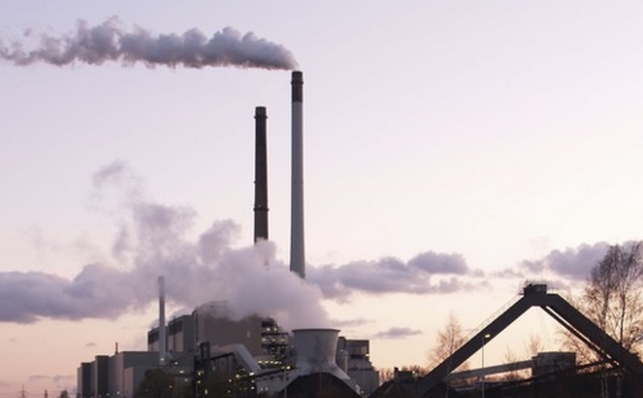
This story originally appeared on PolicyMic.com.
These days, Washington considers climate change legislation an utter non-starter. After all, who has time to address the most alarming public policy challenge of our time when there are artificial crises to bat around?
But there was a time, not too long ago, when Congress came oh-so-close to passing a cap-and-trade plan: the Waxman-Markey Bill, which would have dramatically limited national greenhouse gas emissions had it not been scuttled by the Senate in 2010. Waxman-Markey represented the culmination of years of environmental campaigning and advocacy; its failure is, as Grist’s Philip Bump put it, “a scar the environmental movement tries to ignore but can’t stop examining … a reminder of the lost promise of a new president and a brief House majority.”
Not even three years ago, America was a filibuster or two away from enacting the world’s most comprehensive global warming legislation. Today, we’re the most recalcitrant developed country on the planet.
So what the heck happened? This week has seen the publication of two separate academic papers that purport to explain why the cap-and-trade bill failed. Environmentalists still licking their wounds would be wise to mine these analyses for guidance as they prepare to reenter the political fray in 2013.
The first analysis, by Harvard political scientist Theda Skocpol, has already gotten plenty of attention in places like Grist and The Guardian, so I won’t spend much time on it here. Suffice to say that Skocpol pins most of the blame on the environmental movement itself: for failing to recognize the rise (and the fervor) of the Tea Party; for misreading public opinion polls that reflected a broad but shallow support for climate legislation; and for operating in an “insider-grand-bargaining political style” rather than focusing on grassroots organizing. In other words: The next time environmentalists feel like complaining about public apathy, they should take a long look in the mirror.
By coincidence, Nathaniel Loewentheil, a student at Yale Law School (and PolicyMic pundit), put forth an analysis of his own. Like Skocpol, Loewentheil acknowledges increasing political polarization as a cause for Waxman-Markey’s failure: “Not a single Republican senator was ultimately willing to support a climate bill,” he points out. But partisanship doesn’t tell the whole story, and Loewentheil’s paper contains a few other vital lessons as well.
The first lesson is the importance of the “political geography of energy” — the unfortunate reality that different states will be disproportionately affected by a cap-and-trade bill. If you’re a state with abundant wind or solar potential, you’re in great shape; but if you’re, say, Indiana, where 94% of electricity comes from coal, there’s no escaping that cap-and-trade is going to hit you in the wallet. Consequently, earning the support of carbon-state Republicans — and some Democrats, for that matter — will always be tricky. And that’s to say nothing of the entrenched energy interests, like the American Petroleum Institute and the National Mining Association, whose longstanding donations to the GOP helped ensure Waxman-Markey’s assassination.
The recession represented another huge impediment to cap-and-trade. The economic slump forced President Obama to expend his political capital on financial bailouts and stimulus packages; spawned rabid opposition to big government solutions; and created an environment in which imposing any increased costs on individuals and businesses was political poison. This shouldn’t come as a surprise: As Loewentheil writes, “The historical record supports the idea that bad times for the economy are bad times for environmental policy.”
Given these fiscal and geographic obstacles, was cap-and-trade doomed from the get-go? Loewentheil doesn’t think so. Like Skocpol, he believes that the climate fight could have turned out very differently — if only big green groups like the Environmental Defense Fund and the Natural Resources Defense Council had concentrated on public education and inflaming the passions of their constituents rather than investing further in their old standbys of law, science, and lobbying. Both Skocpol and Loewentheil contrast the failure of the climate lobby with the success of the health care movement, which, as Loewentheil puts it, “saw the area of public opinion as central to their work.”
Whether the environmental movement absorbs these lessons will help determine whether climate legislation can someday survive the congressional gauntlet. Many of the same torpedoes that sunk Waxman-Markey in 2010 are still dangerous today. The cloud of recession has only marginally lifted; fossil fuel interests are as powerful as ever; and the energy geography problem isn’t going away, not as long as Ohio still has seams of coal beneath its soil.
But as climate impacts become more manifest, public support for legislation will grow deeper and broader; indeed, it already has. Last year was chockfull of natural disasters almost certainly exacerbated by climate change: droughts and crop losses, heat waves and wildfires, Hurricane Sandy. This week, the president used a policy window opened by the Newtown shooting to push gun control; environmentalists cannot let their own crises go to waste.
And when the grassroots mobilize, President Obama — whom Loewentheil accuses of a “lack of sustained attention” in 2010 — will have no choice but to respond. Two weeks after Hurricane Sandy awakened America to the reality of climate change, White House spokesman Jay Carney said, “We would never propose a carbon tax, and have no intention of proposing one.”
Environmental groups must demonstrate that climate legislation is a priority in towns and cities across the country, rather than just in Beltway halls, if the White House’s calculus is going to change.